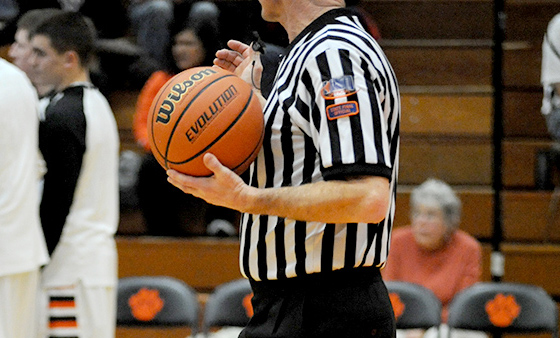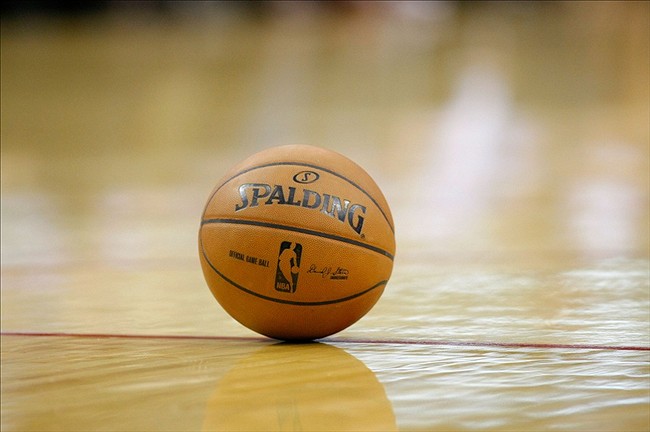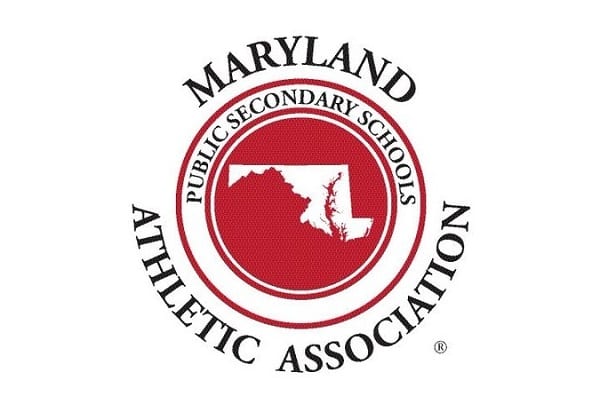Timeout! Coaches must help stem referee abuse
 After nearly two decades of coaching basketball at the youth, travel, middle school and varsity levels, I have witnessed the intensity of cruel verbal attacks on officials being taken to a new level. Twenty years ago, there was that one guy who always screamed at the referees. Today, mobs of fans berate officials after every call.
After nearly two decades of coaching basketball at the youth, travel, middle school and varsity levels, I have witnessed the intensity of cruel verbal attacks on officials being taken to a new level. Twenty years ago, there was that one guy who always screamed at the referees. Today, mobs of fans berate officials after every call.
Parents also are becoming more hostile toward coaches. At a game this season, there was a fan from an opposing school pointing and yelling at me all game. I wasn’t sure what he thought he would accomplish. Near the end of the game, as the other team was trying to foul us, another fan yelled at his team to “handicap” our players.
After the game, a coach from a nearby school who was scouting our team walked down from the stands and told me that the same belligerent fan wanted to punch me in the face. I thought it was a joke. Then, one of the officials walked over and said that the fan was a “disgrace” to that school. He suggested we all walk out of the gym together to ensure our safety.
Is this what it has come to?
Enough is enough. It’s time that coaches work with the referee associations and school administrators to take drastic action to curb bad behavior. The National Federation of State High School Associations has taken a step in the right direction and partnered with state athletic associations to ask sports parents to do a better job of managing their emotions at games.
» ALSO SEE: 5 tips to help coaches communicate with refs
Coaches and athletic directors everywhere may have already read the op-ed, “Dear Mom and Dad: Cool It!” The organizations launched the campaign in January to combat verbal — and sometimes physical — abuse against coaches and referees at high school events.
This is a good first step, but I believe the best way to combat this epidemic is a grassroots effort by coaches and school districts to educate parents on proper behavior and hold the bad actors accountable. Here are some ideas:
1. Coaches should lead by example and stop screaming at the officials. If they have a concern, talk to the referee quietly and refrain from putting on a show. When coaches are animated in their displeasure, the crowd feeds on those actions in a negative way.
2. Communicate to parents prior to the season that screaming and booing at the officials is not tolerated.
3. Talk to players about being respectful to officials, and why it’s important that they set a good example for parents and fans.
4. Work with school administrators to make sure bad characters are held accountable and warned before things get out of hand.
5. Work with local officiating associations to start a dialogue on how coaches and referees can better understand each other. A good first step is having the two groups meet to discuss the major issues that cause conflict. Try to understand where each other is coming from.
6. Talk to officials one-on-one to gain a better understanding of how they call games. Define rules like “straight up,” “over the back” and other calls that regularly make coaches upset.
7. Create a handout for all fans that spells out expectations of those in attendance. Include information for how they can sign up to become an official.
» RELATED: Louisiana bill makes it a crime to yell at refs, coaches
8. Develop a handout with some of the basic rules that often rile up fans. For example, when a player dives for a loose ball and slides across the floor, why is that not traveling? What’s the definition of a jump ball? The Michigan High School Athletic Association produces a series of videos called the “MSHAA Minute — Misunderstood Rules.” These would make for a great presentation at parent meetings.
 According to a recent survey by the National Association of Sports Officials, more than 75% of all high school officials say “adult behavior” is the primary reason they quit. And 80% of all officials hang up their stripes after just two years.
According to a recent survey by the National Association of Sports Officials, more than 75% of all high school officials say “adult behavior” is the primary reason they quit. And 80% of all officials hang up their stripes after just two years.
This season, in an effort to show our appreciation toward officials, our team designed and printed special “thank you” cards. Each player and coach signed the cards and, after halftime, our game manager put them in the referees’ dressing room. After the game, one of the referees ran down our bus to tell us how much he appreciated the card. He said he had officiated for 25 years, and it was the first time he’d ever been thanked. Why would we expect anyone to do a job where they are berated, heckled and never thanked?
It’s time coaches help lead the charge and become part of the solution. There may be nights when they don’t like the officiating crew, but without referees, the games can’t go on.
Matt McCallum is the CEO of Great American Media Services, the owner of Coach & Athletic Director. He has been the girls varsity coach at Sparta Area Schools in Sparta, Michigan, for the past decade.





